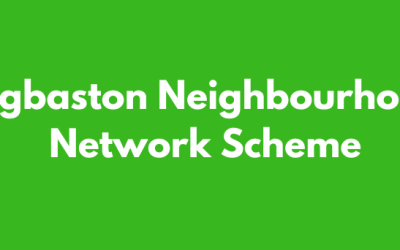Loss is one of the few universal experiences we all face, yet when it happens, many of us find ourselves navigating it in silence. Whether it’s the death of a loved one, the end of a relationship, or the loss of a job or home, grief touches us all. However, despite its inevitability, grief remains a difficult topic. To shed light on this complex journey, Our Edgbaston Neighbourhood Network Scheme spoke to Suzanne McArthur from Thriving Communities CIC. With a background in Occupational therapy and over 25 years of experience in end-of-life care, Suzanne has worked across diverse communities, helping people navigate loss and grief in culturally sensitive and compassionate ways.
The Unspoken Weight of Grief
“Grief is an intense emotional response to any kind of loss, not just death,” Suzanne clarifies. “This loss can be a person, a home, a job, a sense of identity – it can be anything that leaves us feeling like we’ve been torn apart.” For many, however, grief is accompanied by a sense of isolation. Suzanne explains, this societal reluctance to talk about grief stems from a range of factors, including cultural norms, fear of saying the wrong thing, and the pressure to “move on“. The irony is that we often acknowledge milestones like birthdays or anniversaries with public fanfare, but when it comes to loss, we expect people to “get over it” quickly and quietly. This contradiction creates an environment where grieving individuals can feel unsupported and isolated.
Suzanne explains, our social, cultural, and religious backgrounds, past experiences, and even our personalities influence how we grieve. That’s what makes grief such an individual experience – what’s helpful for one person might not resonate with someone else.
The Myth of ‘Healing’ and the Reality of Adjustment
One of the most pervasive myths about grief is that it follows a linear path. We’ve all heard the phrase “time heals all wounds,” but Suzanne is quick to point out that grief doesn’t simply go away – it changes. The reality is that grief can come in waves. There are good days and bad days, moments of intense sadness and moments of acceptance. But our culture’s insistence on “closure” and the notion that we should “get over it” creates a false expectation. “Grief is always with you; it doesn’t just reduce over time,” she reiterates, rather, “you learn to adjust to the loss, not ‘get over it!’” This insight helps challenge the often unrealistic expectations society places on those who are grieving. Healing, as Suzanne clarifies, is not about forgetting the loss, but learning to live with it.
When it comes to supporting others who are grieving, Suzanne advocates for offering genuine compassion and specific support. “It’s about asking how they are today, knowing that they’ve had a tough yesterday and will likely have another tough day ahead,” she explains. Above all, Suzanne encourages people to listen without assuming they know how someone feels. “You might have gone through a similar experience, but you don’t know what it’s like for them. Every grief journey is individual.”
Cultural Dimensions of Grief
The ways in which we grieve are often influenced by our cultural and spiritual backgrounds. Suzanne recalls working with a Muslim woman who had experienced immense support from her community during the first year of widowhood. “That support really helped her through the initial period of mourning. But once that year was over, the expectation was that she should be ‘moving on,’ and the support network disappeared. She found herself isolated and grieving that loss on top of the death of her husband.”
This highlights the dual nature of grief in some cultural contexts. Whilst rituals and communal practices can provide comfort and guidance during the most vulnerable moments, when those rituals end, the individual can be left to navigate grief alone.
Shifting the Narrative
In Edgbaston, we are working towards breaking down the stigma surrounding loss and grief. Working with Suzanne and other partners in the sector, we are enabling conversations around the topic through capacity building of community groups and creative workshops that provide spaces for people to share their experiences, connect with others, and find support. By normalising the conversations around grief, we can create communities that are more open, compassionate, and understanding. It’s time to break the silence and give grief the space it deserves.




0 Comments